Disclosure: We may get commissions for purchases made through links in this post.
Tarmac and asphalt are often regarded as the same. They may be identical when it comes to their uses, but they have different qualities and advantages. We have researched everything you need to know about tarmac and asphalt!
Asphalt and tarmac are mainly used on roads; however, the difference lies within the materials these two are made of. Asphalt is composed of stone and bitumen while tarmac consists of crushed stone mixed with tar. Some other differences include durability, usage, and price.
It is important to know the distinction between asphalt and tarmac because certain advantages outweigh one another. Luckily, we are here to help you identify what these differences are, and which among them is better.
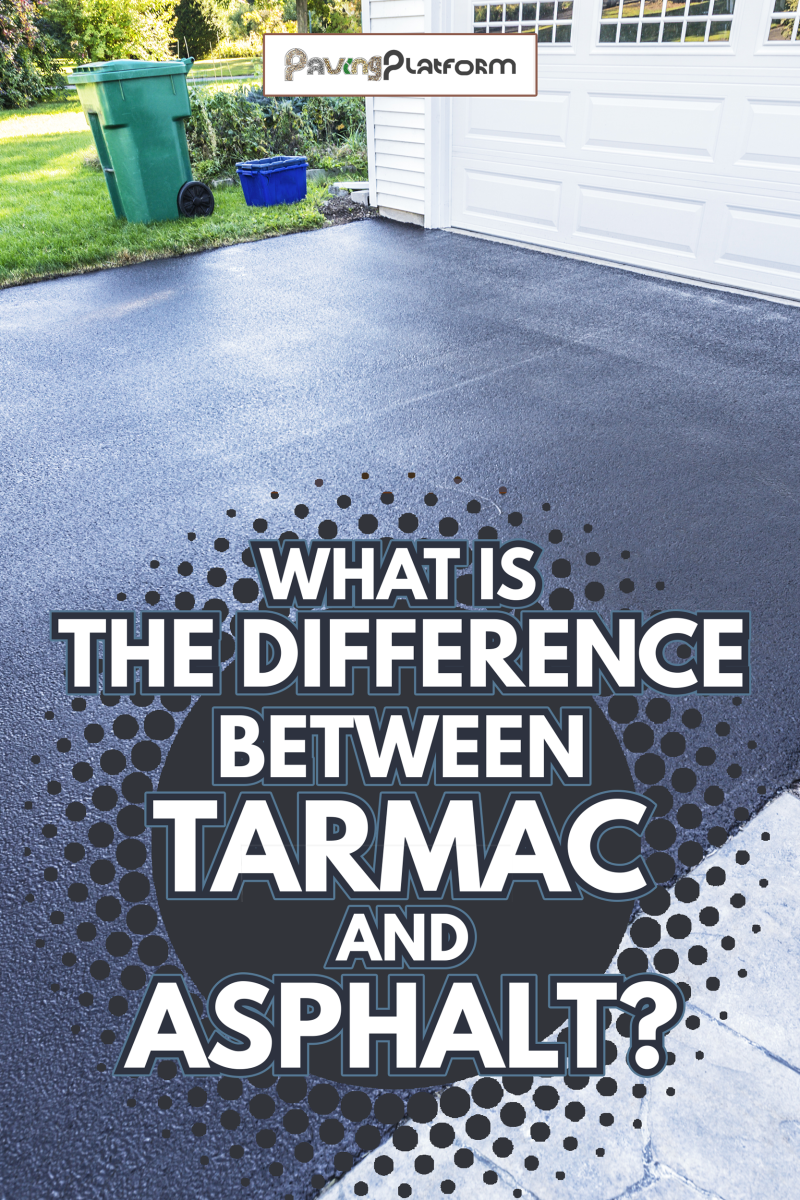
Tarmac Vs. Asphalt
When paving roads, there are certain elements you must keep in mind. Tarmac and asphalt are the two most common surfacing materials used for roads, both in commercial and residential areas.
To further understand the difference between tarmac and asphalt, we must first know the history of these two. Asphalt has been around earlier than tarmac; however, because of modernization, people sought alternatives that can be used in paving roads.
The discovery of tarmac was only an accident. A barrel of tar had fallen on the road, and the builders decided to pour waste slag from furnaces to clear up the mess. Because of that, tarmac was born.
Basically, asphalt and tarmac are almost identical. The difference between these two is that traditional tarmac uses tar as its main element, while asphalt uses bitumen.
Tarmac

Tarmac, short for tarmacadam, is one of the crucial elements for making roads. It has been widely used in airport runways and roads. Unfortunately, tarmac is being replaced by its close cousin: asphalt. But don't worry! Tarmac is still widely used especially in residential areas such as driveways.
What is Tarmac made of?
In this present time, tarmac has been modernized. Traditional tarmac is tar blended with mineral aggregates such as Portland cement, sand, gravel, or concrete.
Modern-day tarmac is quite different. Because roads made with tarmac were first used by horse driven coaches, these roads were not able to withstand cars. That is why today's materials have been upgraded in order to enhance the overall quality of tarmac.
Presently, tarmac is still comprised of cement, gravel, etc, but there are additional materials - asphalt concrete as well as bitumen. You read it right! For the most part, modern tarmac is almost the same as asphalt.
Usage and Installation
Although tarmac cannot withstand the pressure of heavy aircraft and highway vehicles, it is still versatile and useful in a number of ways.
- Driveways
- Playgrounds
- Parking lots
- Cycle paths
In tarmac installation, it is not advisable to lay it yourself even if what you plan on doing is a driveway. Certain machines are recommended to be used because it is not possible to lay a tarmac without these instruments.
Builders first mix hot tar with the aggregates. After that, they prepare the area where the tarmac would be installed. Once preparation is finished, the chemicals are laid out and a vibrating roller is used to ensure a smooth and even application.
After this process, the tarmac sets for drying. It usually takes about three days before tarmac roads, driveways, or surfaces can be used.
What are the qualities of Tarmac?
Before deciding whether tarmac is a good material for let's say, your driveway, it is significant to know the qualities of this material.
Tarmac is hard-wearing, water-resistant, and flexible. It can even withstand and endure any weather condition. Because of these qualities, tarmac is an ideal choice for driveways, roads, and a bunch of other areas where durability is needed.
Aside from its durability, tarmac is a popular choice in many residential areas because it is affordable. Tarmac is a really cost-effective material when it comes to road surfacing.
However, you must be careful if you plan to use a tarmac drives at your properties. Be cautious of below-average quotations. Some contractors will fail to provide the average thickness of materials.
Asphalt
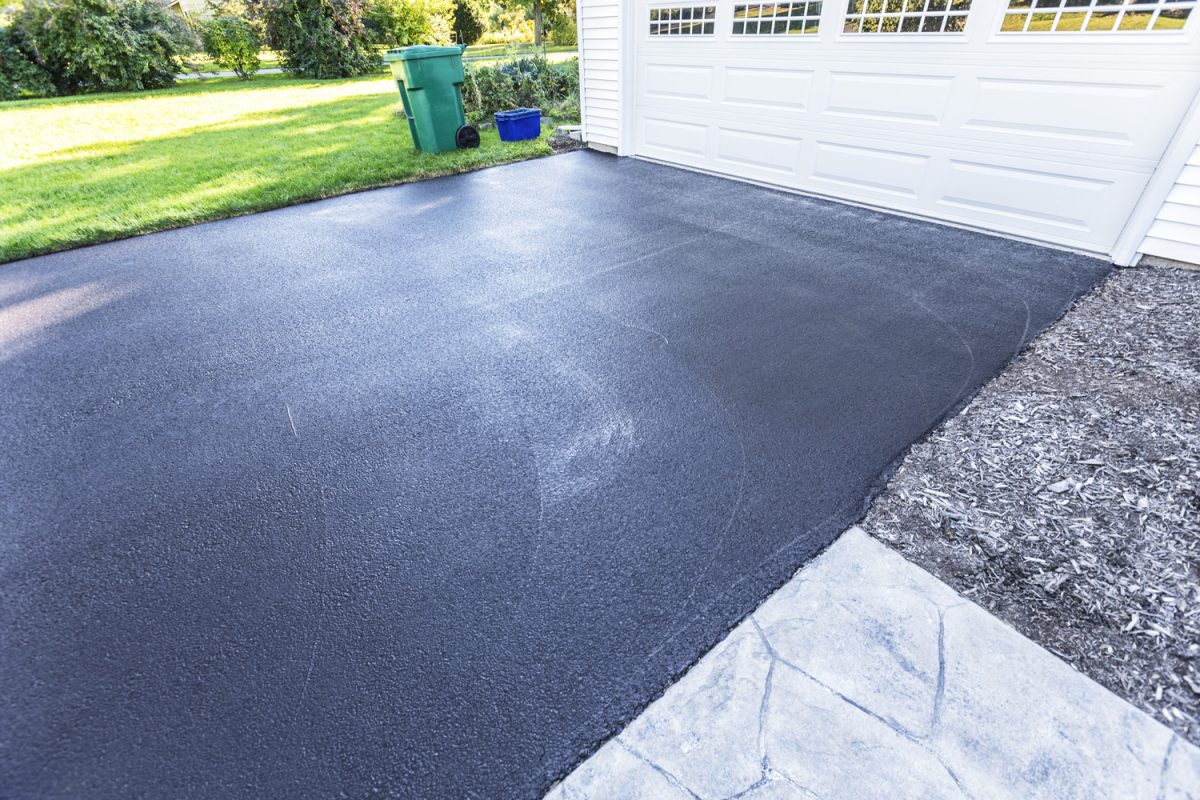
Presently, at least 70% of roads are made of asphalt. It has become the most popular material when it comes to paving roads because of many reasons. The use of asphalt even exceeded the popularity of tarmac because of its intense waterproofing quality.
What is Asphalt made of?
Unlike tarmac, asphalt is not entirely made up of natural elements. The main component of asphalt is bitumen and not tar. Bitumen is a semi-solid form of petroleum that is acquired as a residue from distilling petroleum. Aside from bitumen, asphalt is a mixture of a lot of substances such as aggregates, binders, and fillers.
Aggregates are elements such as crushed rock, natural sand, man-made sand, gravel, slags, and any recycled materials. Binders are often added to the mixture to unite the aggregates together. Bitumen is used as a binder.
Asphalt pavement is composed of multiple layers which are unbound and bituminous bound materials. These elements act as the base for the asphalt poured on top.
Usage
Various types of asphalt have different uses. There are several asphalt paving materials available for contractors and homeowners. These are:
- Hot Mix
- Warm Mix
- Cold Mix
- Mastic
Hot mix is used mostly on highways, interstates, roads, and driveways. Warm mix can also be used on highways and roads, but this type of asphalt is best used in tunnels.
Cold mix is ideal for both warm and cold weather and can be used to repair cracks and potholes - most of the time it even lasts longer than the surrounding pavement.
On one hand, contractors utilize mastic in waterproofing, buildings, rooftops, and underground storage.
What are the qualities of Asphalt?
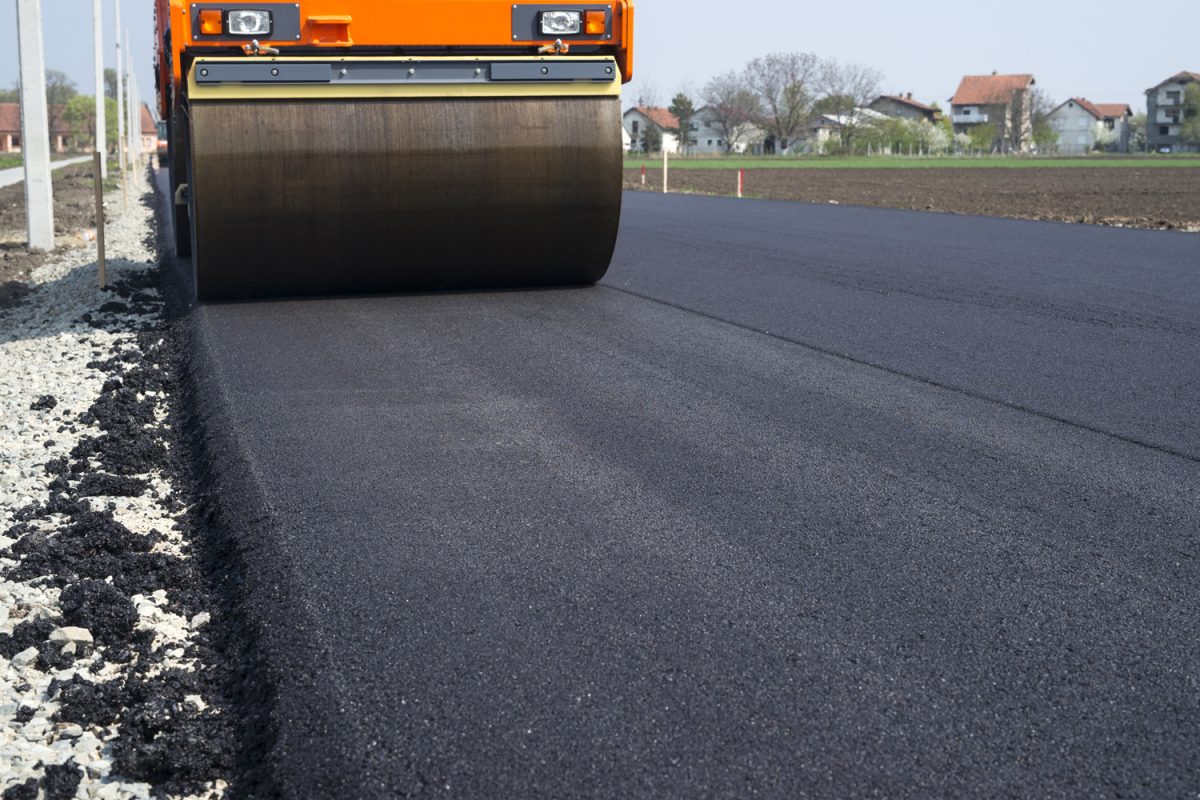
Asphalt is an upgraded version of tarmac. This is the reason why it has become widely used even on highways and airport runways. It is able to withstand the pressure of heavy vehicles. Although it is a little bit more expensive than tarmac, the durability and quality make it worth the use.
Aside from its durability, asphalt has other interesting qualities. Asphalt has intense waterproofing ability, and it has a smoother surface than tarmac. Unlike other paving surfaces, asphalt can be melted back to itself because it is oil-based.
This is the reason why asphalt is ideal for crack repairs and potholes. It can easily be melted back which makes an impeccable repair.
Another daring quality of asphalt is its being skid-resistant. This is an important quality for highways, and roads because it offers safety and protection. Because of this quality, asphalt is smoother than any type of pavement.
Which is best for a driveway, asphalt or tarmac?
Now that we know the difference between asphalt and tarmac, which kind of pavement is best for your driveway? It all boils down to personal preference. Both materials are durable, but they have their own advantages.
When it comes to safety, asphalt offers a safer option because it has a smoother surface than tarmac. However, asphalt is a little costly when used in smaller areas, but it is harder-wearing than any other surface. Tarmac is widely used in residential areas because it is cost-effective.
Nevertheless, if you are an environment enthusiast, asphalt is a more eco-friendly option because it is 100% recyclable, and it is the most recycled material in America.
In Closing
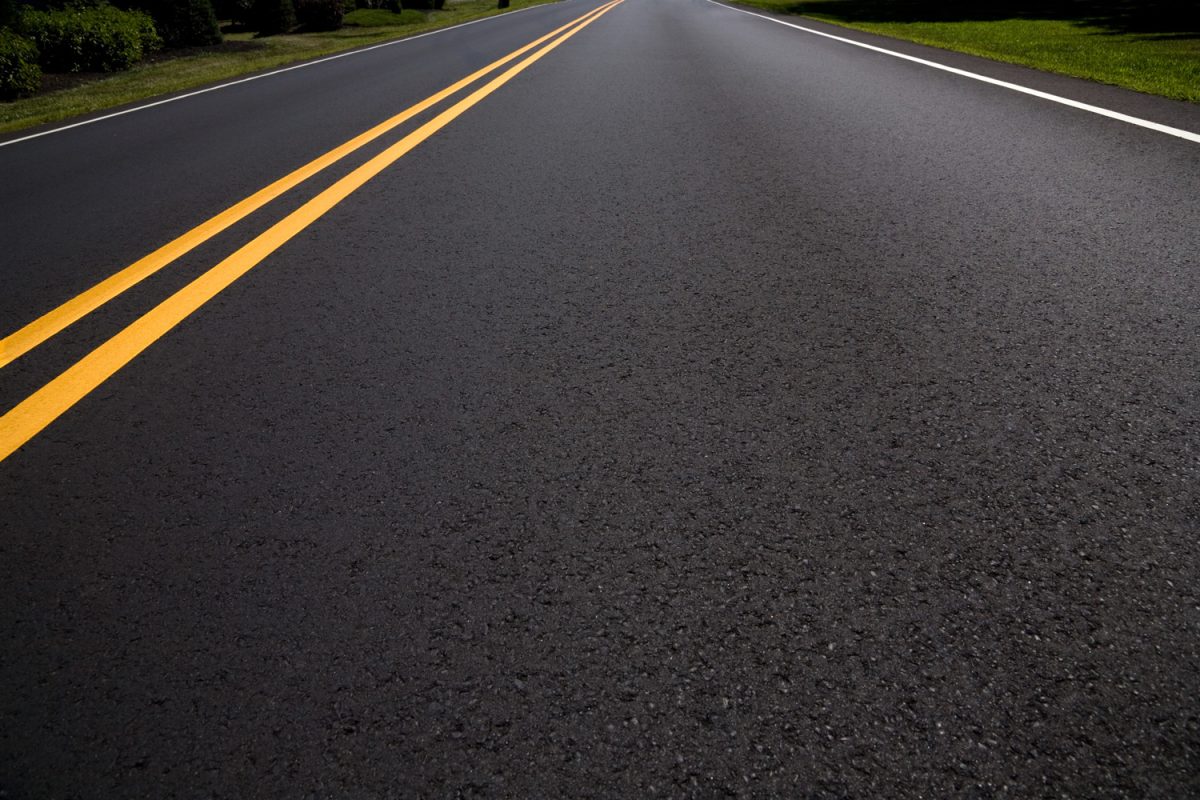
Asphalt and tarmac offer certain qualities that are advantageous for drivers, commuters, and homeowners. All the differences between these two are in the materials they are made of. Asphalt may be more durable than tarmac, but both these materials have the same purpose - to offer people roads, driveways, and highways.
If you are interested in crashed concrete and gravel driveway, check "Is Crushed Concrete Better Than Gravey Driveway (Pros & Cons of Recycled Concrete."
If you found this article helpful, check "Does Asphalt Need Edging?"

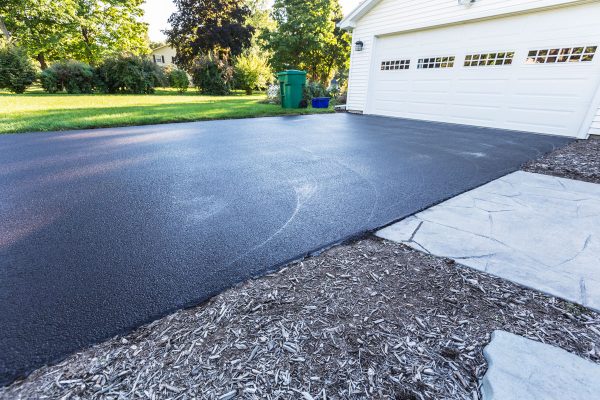
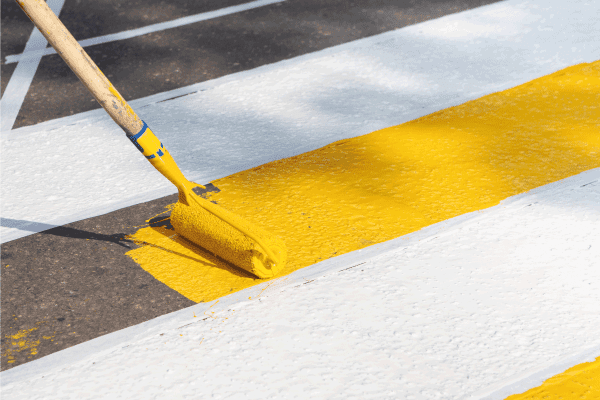
![Two manual workers helping to level the asphalt surface for a steamroller to press, Types Of Asphalt [And How To Choose For Your Driveway Or Walkway]](https://pavingplatform.com/wp-content/uploads/2022/03/Two-manual-workers-helping-to-level-the-asphalt-surface-for-a-steamroller-to-press-600x400.jpg)